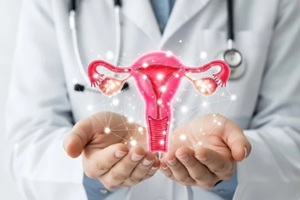Essential Takeaways:
 National programs such as the CDC’s NBCCEDP provide free or low-cost breast cancer screening services for eligible women with limited insurance or low income.
National programs such as the CDC’s NBCCEDP provide free or low-cost breast cancer screening services for eligible women with limited insurance or low income.- Since 1991, the National Breast and Cervical Cancer Early Detection Program has provided millions of screening exams and detected thousands of breast cancers at an early stage.
- Nonprofit networks, such as the National Mammography Program, connect women with partner facilities that offer grants for free breast screenings.
- Additional resources, such as patient navigators, state programs, and foundation helplines, can help you overcome barriers such as cost, transportation, and information gaps.
- You don’t have to experience breast cancer screening alone, as help is available regardless of your financial or insurance status.
Free and Low-Cost Mammography Programs
If you’ve been putting off a mammogram because of cost, insurance gaps, or not knowing where to start, you’re not alone. Concern about how to afford breast cancer screening, especially when juggling work, family, or caregiving responsibilities, is a real barrier for many women. The good news is that you don’t have to choose between your health and your budget.
A variety of national programs and resources exist to help women access life-saving breast imaging and support, even if you have limited or no insurance. Let’s review what programs and resources are available and how you can tap into these options with confidence.
What National Programs Can Offer You
Several federally funded and nonprofit programs are designed to connect women with free or affordable mammograms and breast health services. One such resource is the National Breast and Cervical Cancer Early Detection Program (NBCCEDP), administered by the Centers for Disease Control and Prevention (CDC). This program has been helping women for more than 30 years by providing access to breast and cervical cancer screening and diagnostic services for women with low incomes who do not have adequate insurance coverage.
Since its inception, the NBCCEDP has provided millions of breast cancer screening exams and diagnosed thousands of breast cancers early, when treatment is most effective. The program partners with state health departments and organizations across all 50 states, U.S. territories, and tribal communities to deliver services near you.
Another valuable resource is the National Mammography Program, supported by the National Breast Cancer Foundation, which works with a network of partner facilities to offer grants for free mammograms, diagnostic services (such as 3D imaging), and clinical breast exams to women who qualify.
Who Qualifies for Free or Low-Cost Screenings
You might be surprised how many women qualify for assistance. While eligibility varies by program:
- The CDC’s NBCCEDP typically serves women aged 40 to 64 for breast cancer screening who have low income and are uninsured or underinsured.
- Many state and local cancer screening programs extend similar services and sometimes include additional age groups or diagnostic follow-up support through Medicaid or other state-funded options.
- Nonprofit-led programs often consider income, insurance status, and local availability rather than strict age cutoffs.
You can usually find your eligibility and enrollment details by contacting your local health department, calling national helplines such as 1-800-232-4636 (CDC), or exploring partner organization websites that list locations and qualification criteria.
The Value of Screening and Early Detection
 Regular breast cancer screenings are one of the most effective ways to detect disease early, often before symptoms appear. Early detection significantly broadens treatment options and leads to better overall outcomes. This is especially important if you have previously experienced barriers that delayed screenings.
Regular breast cancer screenings are one of the most effective ways to detect disease early, often before symptoms appear. Early detection significantly broadens treatment options and leads to better overall outcomes. This is especially important if you have previously experienced barriers that delayed screenings.
Support Beyond the Screening Appointment
Accessing a mammogram is often just the first step, and many women worry about what happens next, especially if something abnormal is found. Many programs offer patient care coordination services to support you through appointments, follow-up imaging, diagnostic testing, and referrals for treatment if needed.
These programs will:
- Explain how and where to get your screening
- Help schedule appointments
- Connect you with transportation or childcare resources
- Clarify insurance or financial assistance options
- Support you emotionally through the process
Finding a Program Near You
If you’re ready to take that step toward a mammogram but don’t know where to begin, here’s a practical approach:
- Check eligibility for the CDC’s NBCCEDP by visiting their screening locator and entering your zip code.
- Contact nonprofits such as the National Mammography Program to find partner facilities offering free or reduced-cost services near you.
- Call national helplines such as 1-800-232-4636 (CDC) or your state’s cancer services line for guidance and local program lists.
- Ask your women’s health provider for assistance, as they often know nearby resources and can help you apply or refer you directly.
Affordable Screening Is Within Reach
If concerns about cost, lack of insurance, or confusion about where to start have kept you from getting screened, know that help is available. National mammography programs and supportive resources are in place so that financial barriers don’t keep you from early detection and peace of mind. With clear guidance and community support, affordable breast cancer screening is within reach, even if you’ve felt stuck or uncertain.
Get the Support You Deserve
 If you’re due for a mammogram, feel unsure about your options, or want help finding affordable breast cancer screening resources, we’re here to help. Our women’s health team at Raleigh Gynecology & Wellness can guide you to national programs, financial assistance, and the right imaging services with compassion and clarity. Don’t wait to take care of yourself.
If you’re due for a mammogram, feel unsure about your options, or want help finding affordable breast cancer screening resources, we’re here to help. Our women’s health team at Raleigh Gynecology & Wellness can guide you to national programs, financial assistance, and the right imaging services with compassion and clarity. Don’t wait to take care of yourself.
Reach out today and let us help you find the resources you need to stay healthy.

 Perimenopause often arrives quietly, then all at once. You may notice irregular periods, mood shifts, fatigue, sleep problems, or weight changes that don’t respond the way they used to. This transition lasts an average of
Perimenopause often arrives quietly, then all at once. You may notice irregular periods, mood shifts, fatigue, sleep problems, or weight changes that don’t respond the way they used to. This transition lasts an average of 
 Perimenopause can feel unpredictable, but your daily routines provide grounding and stability. When you support your body consistently through nutrition, sleep, exercise, and stress management, you can gain greater confidence and energy.
Perimenopause can feel unpredictable, but your daily routines provide grounding and stability. When you support your body consistently through nutrition, sleep, exercise, and stress management, you can gain greater confidence and energy. Irregular periods are one of the most common signs of
Irregular periods are one of the most common signs of  One of the most effective ways to stabilize
One of the most effective ways to stabilize  Thyroid disorders
Thyroid disorders You can
You can  Alcohol is one of the most straightforward modifiable factors, as any drinking increases breast cancer risk, particularly hormone receptor-positive types. An
Alcohol is one of the most straightforward modifiable factors, as any drinking increases breast cancer risk, particularly hormone receptor-positive types. An  You can’t erase your family history or refine your genes, but you can reduce many common breast cancer risks. Paying closer attention to your weight, engaging in regular exercise, limiting alcohol consumption, avoiding hormone exposure when possible, and undergoing regular screenings can all make a difference in your breast and overall health.
You can’t erase your family history or refine your genes, but you can reduce many common breast cancer risks. Paying closer attention to your weight, engaging in regular exercise, limiting alcohol consumption, avoiding hormone exposure when possible, and undergoing regular screenings can all make a difference in your breast and overall health. Menopause-related hormonal changes can disrupt your sleep cycle and drain your daytime energy.
Menopause-related hormonal changes can disrupt your sleep cycle and drain your daytime energy. The most effective way to address sleep and energy issues during menopause is through personalized care. Everyone’s experience is different, and what works for some women may not work for others.
The most effective way to address sleep and energy issues during menopause is through personalized care. Everyone’s experience is different, and what works for some women may not work for others. Reclaiming your energy after menopause isn’t just about sleeping more. It’s about helping your mind and body reach equilibrium again. As hormone levels stabilize with the right treatment plan, many women notice more consistent moods, improved focus, and renewed motivation to stay active.
Reclaiming your energy after menopause isn’t just about sleeping more. It’s about helping your mind and body reach equilibrium again. As hormone levels stabilize with the right treatment plan, many women notice more consistent moods, improved focus, and renewed motivation to stay active.